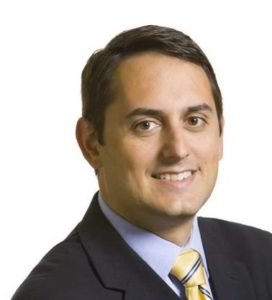The Right Note is a biweekly opinion column. The views expressed are solely the author’s.
Every year is an election year here in the Commonwealth of Virginia. This November, voters will head to the polls to select new statewide leadership and elect every member of the House of Delegates.
In fact, the House of Delegates are likely to conduct elections in three consecutive years. Due to the delayed Census data, delegate races will be held under existing district lines this year. Then special elections will be conducted in 2022, and regular elections again in 2023, both under the new lines.
The new bipartisan redistricting commission is now at work and is slated to produce maps for the General Assembly and Congress in October. Over the last week, the Commission opted to evaluate political data in drawing the maps. They also opted to do two things which seemingly stand in opposition to each other — take into account where incumbents lived while also starting the maps from scratch. Hopefully, the Commission and the General Assembly can meet the deadlines laid out by law and avoid leaving this up to the Virginia Supreme Court.
But before these maps take effect, hundreds of millions of dollars will flow into Virginia to impact a statewide election which often foreshadows the mood of the voters nationally after a presidential election. There are big questions about who will turn out to vote and why?
According to the most recent VCU poll on the 2021 gubernatorial election, Virginia voters see “the economy” as the biggest issue facing the new Governor. When combined with those who put “employment” at the top of their list, a full 40 percent of Virginians are most concerned about how they will provide for themselves and their families. Healthcare is a distant second at 17 percent.
Here in Arlington where unemployment numbers for residents remains relatively stable, our workforce shrank by 8.3 percent year-over-year, higher than the national average of 4.5 percent. This should come as no surprise after a year of lockdowns, mandates and uncertainty. Some businesses closed their doors. Others were hurt but found a way to survive.
Many businesses have help wanted signs up and are hoping workers will return. That’s good news for displaced low wage workers have benefitted from enhanced unemployment benefits which are likely coming to an end soon. The trillions of dollars of federal stimulus propping up the economy (and driving inflation) may be coming to an end soon as well.
Over the long term, we need to get back to the fundamentals of the private marketplace not government intervention, and the voters are evaluating who is right to lead Virginia through an economic recovery. It is no surprise then, that despite Republican losses in every statewide election since 2009 we see businessman Glenn Youngkin within the margin of error in poll after poll in the Governor’s race. Former Governor Terry McAuliffe is having trouble approaching the 48 percent of the vote he received in 2013. Maybe it’s because McAuliffe is a known quantity, but it’s not for his business acumen?
McAuliffe and company are running the same anti-Trump playbook Democrats have used since 2017, and banking on recent voting trends to carry him to victory and hold the majority in the House of Delegates. Will it work with the economy-weary voters of 2021? We will know 10 weeks from today.
Mark Kelly is a former Arlington GOP Chairman and two-time Republican candidate for Arlington County Board.


